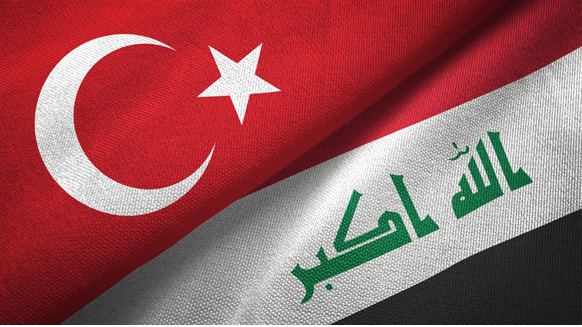Iraq has asked Turkey to allow oil shipments from Kurdistan to return through the neighboring country’s Ceyhan port, the central and regional governments said on Thursday, following an international ruling that ended years of disputes .
Iraq’s State Oil Marketing Organization (SOMO) “informed the Turkish company BOTAS to resume export and loading operations from Saturday, May 13,” said Oil Minister Hayan Abdul -Ghani to the Iraqi News Agency, referring to Turkey’s state-controlled carrier Petroleum. Pipeline Corp.
He told state media that “the conclusion of contracts with international companies for the sale and marketing of crude oil from the Turkish port of Ceyhan has been completed, in accordance with the mechanisms adopted by the Iraqi oil marketing company SOMO” .
The statement follows an announcement by the Kurdistan government that the Iraqi region has reached an agreement with Baghdad to allow the resumption of oil exports through Turkey.
“The Ministry of Natural Resources of the Kurdistan Region announced in a statement that on May 10, Iraq’s State Oil Marketing Organization (SOMO) officially requested Turkish authorities to allow oil exports from the Kurdistan region through the country’s Ceyhan port,” the regional government said in a press release. .
“Both the Ministry of Natural Resources of the Kurdistan Region and the Ministry of Oil of Iraq are awaiting Turkey’s response before resuming oil exports.”
Iraq’s oil ministry had declared victory against Turkey in a case at the International Chamber of Commerce that had sought the claim SOMO is the only entity authorized to handle oil shipments from Kurdistan. Baghdad sued Ankara in 2014 for allegedly allowing the export of oil from the region without the consent of Iraq’s Oil Ministry, in an alleged breach of the two countries’ 1973 pipeline agreement. The Paris-based court made its decision on February 13, agreeing that Iraq’s Oil Ministry has the right to handle the export, but also ordered Baghdad to pay Ankara’s outstanding fees and other costs
Under the deal, the neighbors jointly built two pipelines between the oil fields of Kirkuk in northern Iraq and the port city of Ceyhan in southern Turkey. The first became operational in 1977 and the second in 1985. The pact and its subsequent amendments have provided Iraq with a new channel for its main exports and Turkey with an opportunity to strengthen Ceyhan’s position as a center of oil and gas transport in the Middle East. Iraq pays Turkey a transport fee and until 2010 reserved part of the shipments for its purchase, according to the text of the court ruling.
Saying the case stems from the disagreement between Baghdad and Kurdistan over the rights to manage oil resources, Turkey said in a statement after the ruling that it “has always respected the unity and territorial integrity of Iraq and has been working relentlessly for the political and economic stability of both Iraq and the region”.
“Turkey will continue to abide by international law and is ready to contribute in every possible way to finding a lasting solution between the real parties to this dispute,” he said in the March 28 statement.
To contact the author, please email jov.onsat@rigzone.com


